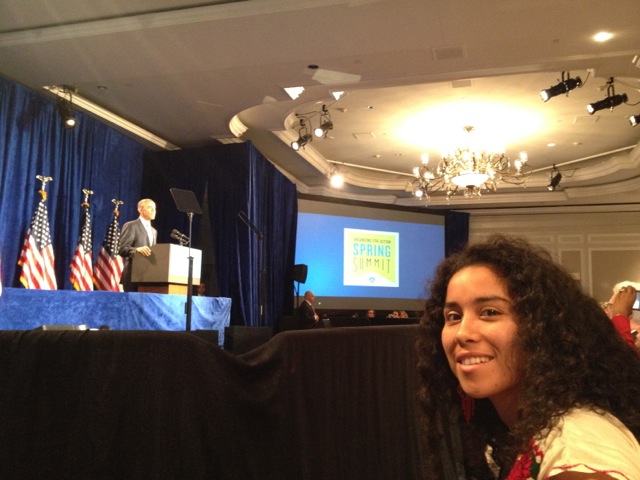Erika Hernandez fulfilled Santa Rosa Junior College’s ideal of fostering diverse educational opportunities when she met President Barack Obama on an Organizing for Action (OFA) summit April 23.
Linda Hemenway, chair of the Sonoma County chapter of OFA, enabled Hernandez to go on the OFA Fellowship summit to meet the president after she became a fellow of the OFA Fellowship Program.
OFA is a non-profit advocacy organization dedicated to educating and engaging community members across the country to empower the American people.
The purpose of the summit was to bring fellows from around the country together in Washington D.C. to listen to the president’s motivating speech and express his gratitude to the youth who get involved in the community and make it a better place.
Hernandez said she was excited to meet the president and shake his hand. “I wanted to go and represent the students back from my community, M.E.Ch.A. [Movimeinto Estudianti Chicanista de Atzlan] and Black Student Union,” she said. “Sitting there and just hearing him talk was an incredible experience.”
Though she believes Obama boldly started off his historical presidency, there are three main aspects of his policies Hernandez said she’s critical of, which she addressed to him in a letter.
“As a student, I feel that we have the obligation to be critical,” Hernandez said. “We’re the most vital force in society and we should be the vanguard of all social movements; and so we have to be critical of our leaders, of ourselves and of our organizations.”
Her main critiques include the way Obama handles immigration and family unification, the lack of attention to the systematic financial problems college students encounter and his foreign trade agreements.
Michael Hale, SRJC English instructor and previous volunteer with OFA, said he was proud of Hernandez for addressing these issues to the president. “I think students who exercise their critical thinking need a lot of encouragement and congratulations.”
BSU President Elias Hinit said diverse club members address the fundamental causes of the issues plaguing our society during their conferences and multicultural dinners.
“We talk about relevant issues and provide a safe space and opportunities for all students, especially students of color who are being oppressed, to actually talk about these issues in a critical way,” Hinit said.
According to Hernandez, the OFA Fellowship Program required watching training videos on developing press relations, how to organize volunteers and utilizing other tools beneficial for conducting conferences.
Hernandez, co-chair of M.E.Ch.A., said she was able to implement the training she learned from the OFA Fellowship Program into conducting conferences and events, which she hopes to see more clubs get involved in.
To help empower and prepare club members to coordinate direct action events, Hernandez said they need to build resources and connections.
“We want to keep expanding because the more of us there are to work on this, the more powerful the outcomes are going to be,” she said.




